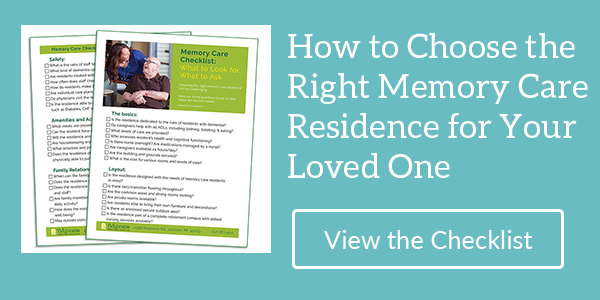Communicating with Alzheimer’s patients is emotional and a delicate skill. Communication is one of the most essential skills in life. When the ability to communicate is taken away, it can be devastating. For those with Alzheimer’s disease, the ability to express themselves and converse with others slowly declines, frustrating them and those who love them and care for them. But there are ways to communicate with Alzheimer’s patients and help them to communicate with you by understanding what is happening and showing compassion.
What is Alzheimer’s disease?
Before trying to communicate with Alzheimer’s patients, it helps to understand the disease. The most common form of dementia, Alzheimer’s disease is caused by changes in the brain. According to the National Institutes of Health article, “What Is Alzheimer’s Disease” it is caused by the growth of amyloid plaques and neurofibrillary tangles in the brain as well as the loss of connections between nerve cells that transmit messages. At the beginning, the changes attack short-term memory, then as the disease progresses, long-term memory, language, social behavior, and reasoning are affected. At this time, Alzheimer’s disease is the sixth leading cause of death in the U.S.
Communicating with Alzheimer’s patients in the early stages
When a loved one is diagnosed with early-stage Alzheimer’s disease, it’s important to understand what to expect and how to compassionately help, not hinder. Some of the symptoms include the inability to remember the names of new people, forgetting something they just read or heard, losing items, being unable to find the right word, repeating themselves, and losing their train of thought.
When attempting to communicate with Alzheimer’s patients, caregivers should be patient and encourage them to express their wants, needs and feelings while giving them plenty of time to do so. Learning to communicate with Alzheimer’s patients should also include keeping them in group conversations and activities, trying not to correct or interrupt them, and not being afraid to joke a little and make them laugh. More tips can be found in the alzu.org blog, “Communication Problems in the Early Stages of Alzheimer’s Disease.”
Communicating with Alzheimer’s patients in the middle stages
As Alzheimer’s disease progresses, memory loss will continue to decline, although the patient may be less aware of it than they were at the beginning. In the middle stages short- and long-term memory are impacted, but other symptoms can occur such as changes in social behavior, increased agitation, delusional or paranoid episodes, a tendency to wander, and trouble walking, sleeping, and caring for themselves.
At this time compassion is key when trying to communicate with Alzheimer’s patients. As they are less able to express themselves, Alzheimer’s patients may not be able to tell you what they need, how they feel or where they want to go. By calmly asking them questions or guiding them when they are walking around aimlessly, you can help alleviate the frustration and eliminate the problem.
Also keep in mind when you communicate with Alzheimer’s patients that they may be in pain or have a physical ailment they cannot explain (like urinary tract infections or tooth problems) so a visit to their physician may be in order. Among the most troublesome symptoms are anxiety and aggression which can trigger other problems. For help understanding anxiety and aggression, the alz.org article “Anxiety and Aggression” is a great resource.
Communicating with Alzheimer’s patients in the late stages
The late stages of Alzheimer’s disease are often the most challenging. Verbal communication may have become almost impossible, and bodily functions may be impacted. But caregivers can communicate with Alzheimer’s patients in other ways. Playing music is a great way to soothe an agitated loved one, as is looking at photos together, sharing your memories, smiling and making eye contact when speaking to them, and being aware of body language so they do not feel threatened.
Even when words fail, actions can show compassion when trying to communicate with Alzheimer’s patients. For example, sharing a meal (and feeding them if necessary) is a way to tell them that they are still included in this comforting routine. Nutrition is important but that time spent together can also be soothing and a great time to reassure them that they are safe and loved. For Alzheimer’s patients who are no longer mobile, take time to read books to them or watch a movie together, even if they don’t seem interested. Get more information in the National Institute of Aging’s article, “Caring for a Person With Late-Stage Alzheimer’s Disease.”
In memory care at Ganton’s Countryside, our staff are experts in caring for Alzheimer’s patients with compassion and respect to help them stay independent and safe. For more information about Countryside, please call Margaret Nagel at (517) 206-5000 or download our brochure to learn about our care levels, cost, and amenities.


